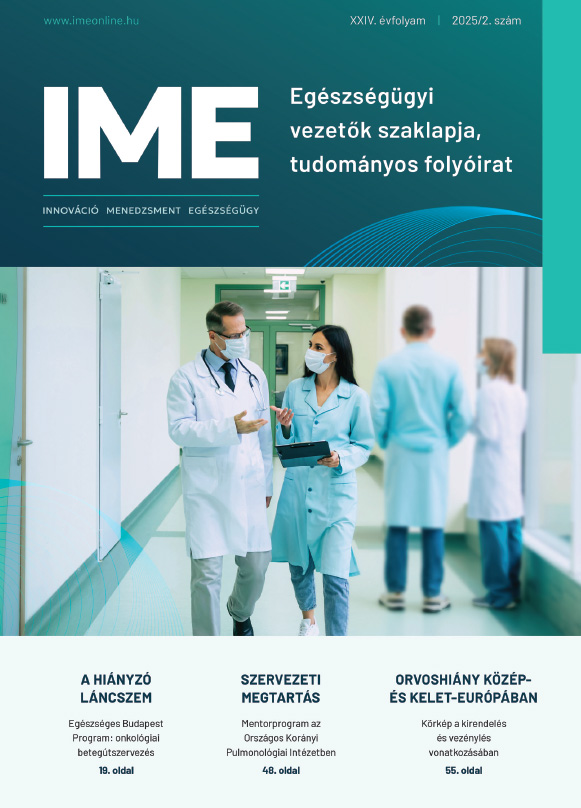Az orvoshiány kihívásai Közép és Kelet Európában
Körkép a kirendelés és vezénylés vonatkozásában
Abstract
The shortage of physicians presents a significant and escalating challenge for healthcare systems across Europe, particularly in rural and disadvantaged regions. To address this issue, countries in Central and Eastern Europe have implemented a range of strategies, including the utilisation of telemedicine, the recruitment of foreign healthcare professionals, and the temporary reassignment of physicians. This study explores the practices of physician reassignment in Hungary, Slovakia, Austria, Slovenia, Croatia, Romania, Ukraine, and Serbia while disseminating preliminary findings from the “Human Resources for Health Research 2024”. In neighbouring countries, variations in the legal frameworks governing physician reassignment are observed; these frameworks also tend to emphasise the financial and professional incentives and foster the active involvement of healthcare professionals in the decision-making process. In Hungary, the reassignment of physicians is governed by Act C of 2020 on the Legal Status of Healthcare Service Personnel, which endows employers with considerable authority to make deployment decisions. However, the current legislative framework does not address healthcare workers' preferences. Preliminary results from the “Human Resources for Health Research 2024” indicate that 29% of resident respondents experienced alterations to their training plans due to reassignments. Furthermore, 68% expressed a willingness to pursue professional rotations in other cities, provided such opportunities were associated with career development. Additionally, 55.5% of respondents indicated an openness to commuting for work if appropriate job opportunities were available. These findings suggest that residents demonstrate receptiveness to mobility within the healthcare system, contingent upon the availability of clear professional benefits and incentives. The approaches adopted across Central and Eastern Europe highlight the need for more structured, staff-centred frameworks that align institutional demands with individual career aspirations. Future research should also investigate additional demographic, personal, and institutional factors that may influence the efficacy and perceptions of reassignments. Moreover, policy considerations should emphasise financial and professional incentives, transparent decision-making processes, and the active participation of healthcare professionals in career planning.

This work is licensed under a Creative Commons Attribution-NonCommercial-NoDerivatives 4.0 International License.




